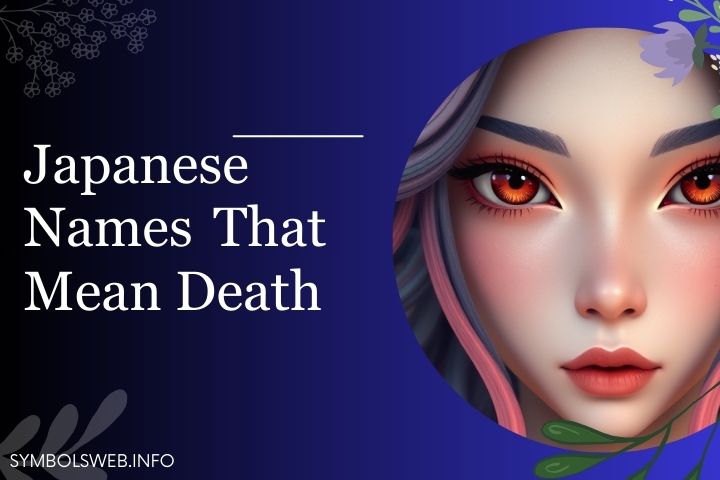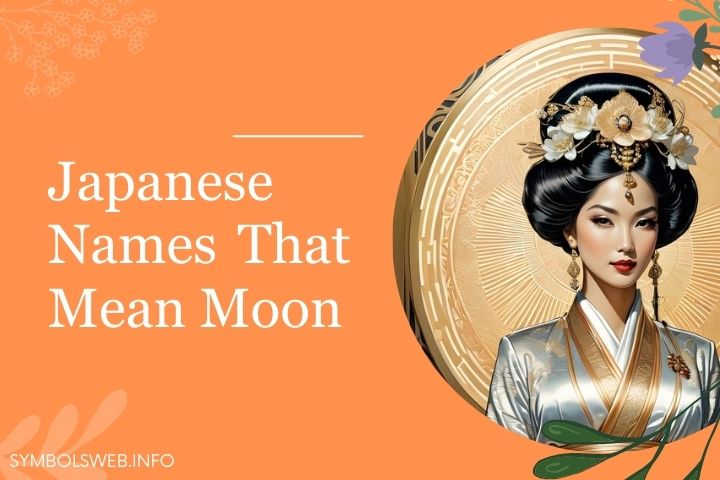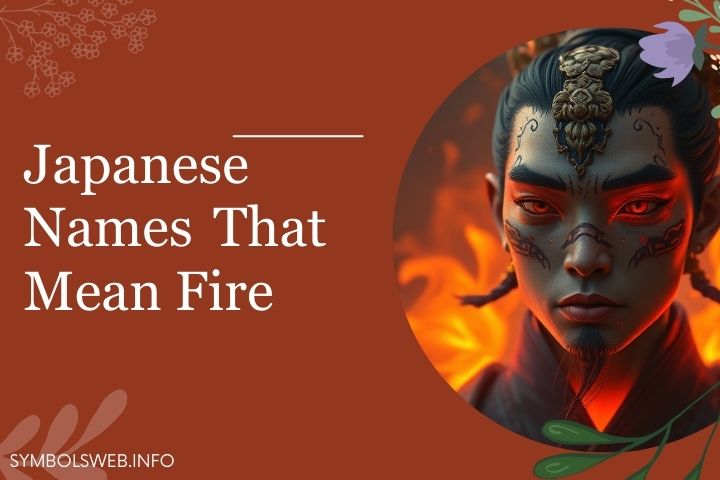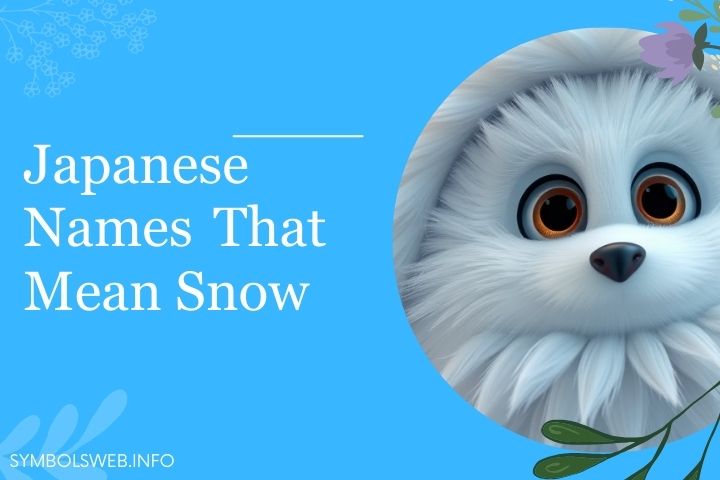When exploring the rich tapestry of Japanese culture, one might come across names that carry deep and sometimes somber meanings. Among these are Japanese names that mean death, which hold a unique place in the language and cultural expressions. While it may seem unusual to some, these names often reflect profound philosophical concepts about life and mortality.
In Japan, death is not merely an end but a transition to another state of being. Names associated with death can symbolize respect for this natural cycle and an understanding of life’s impermanence. For instance, the name “Shinigami” translates directly to “death god,” embodying the spiritual aspect of death as seen in folklore and literature.
Choosing such a name might be rooted in tradition or personal belief systems that honor ancestors or acknowledge life’s transient nature. It’s important to approach these names with sensitivity and appreciation for their cultural significance rather than mere curiosity.
Understanding Japanese names that mean death offers insight into how different cultures perceive life’s ultimate certainty. It invites us to reflect on our own views about mortality and consider how language can encapsulate complex ideas about existence.
Female Japanese Names That mean death
Discover female Japanese names meaning death—each with rich history and profound significance. Find the perfect name with a twist!
Shiho (死穂) – “Death’s Ear of Grain”
Shizuka (静香) – “Silent Fragrance” (symbolic for eternal rest)
Reika (霊華) – “Spirit Blossom”
Yomi (黄泉) – “Underworld”
Akuna (悪奈) – “Wicked Accomplice of Death”
Ritsuya (律夜) – “Law of the Night”
Kurai (暗い) – “Darkness”
Mika (美火) – “Beautiful Flame of Passing”
Shino (死乃) – “Of Death”
Amane (天音) – “Sound of Heaven”
Kumoha (雲刃) – “Blade of the Cloud” (symbolizing fleeting life)
Aika (哀歌) – “Song of Sorrow”
Mitsuka (密香) – “Fragrance of the Departed”
Hazuka (葉冢) – “Grave of Leaves”
Also Check: 80 Japanese Names That Mean Fire With Significance
Renka (蓮華) – “Lotus Flower” (often connected with life’s impermanence)
Kanade (奏彡) – “Playing the Melody of Finale”
Kagen (花厳) – “Flower and Seclusion”
Noriko (故子) – “Child of Fate”
Akegaru (明軽) – “Light Transition to Dawn”
Yukika (雪歌) – “Song of Snow” (symbolizing the end and purity).
Male Japanese Names That mean death
Explore male Japanese names meaning death, rich in history and symbolism. Uncover these intriguing options for your next character or story!
Shirou (死郎) – “Fourth Son of Death”
Hikage (日影) – “Sunset’s Shadow”
Renji (蓮司) – “Lotus Guide” (symbol of death’s stillness)
Reiichi (霊一) – “Primordial Spirit”
Akuma (悪魔) – “Demon”
Kuroya (黒夜) – “Black Night”
Hakai (破壊) – “Destruction”
Haruto (陽翔) – “Sun Flight” (symbolizing a soul’s liberation)
Kiyoshi (清司) – “Pure One Who Guides”
Tsubasa (翼) – “Wing of Passage”
Izuna (出名) – “Emerging Names” (e.g., whispered at funerals)
Kurogane (黒金) – “Black Steel”
Yoruichi (夜一) – “One Night”
Arata (荒田) – “Wildfield of Souls”
Shouma (昇真) – “Ascending Truth”
Ginzo (銀葬) – “Silver Burial”
Hajime (一目) – “First Sight in Darkness”
Raiko (雷孤) – “Thunder Alone”
Mugen (無限) – “Without End”
Takuma (拓真) – “Expanding Truth of Death.”
Genji (源氏) – “Dignified Exile from the Underworld”
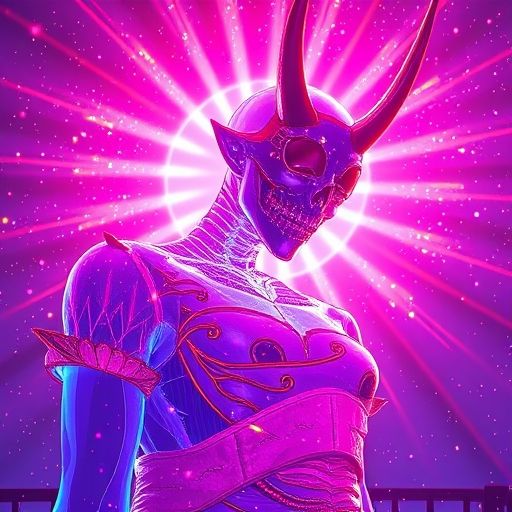
Shinto (新都) – “New Capital of Death”
Hinoto (日之訓) – “Day’s Teachings on Mortality”
Akuma (悪魔) – “Devil” (reflects death as a darker force)
Miharu (美春) – “Beautiful Spring of Passing Life”
Touki (冬季) – “Season of Winter Death
Gender-neutral Japanese Names meaning death
Explore gender-neutral Japanese names that mean death. Uncover their intriguing significance and choose a name with a striking legacy!
Tomoe (巴) – “Circular Cycle”
Kage (影) – “Shadow”
Yoru (夜) – “Night”
Itsuna (逸名) – “Forgotten Name”
Shizume (静目) – “Quiet Eyes of Rest”
Nozomi (希死) – “Wish of Passing”
Kaika (開花) – “Blooming of Farewell”
Riku (陸) – “Land” (symbolizes the other shore in Buddhist terms)
Souta (奏多) – “Many Melodies of Passing”
Raika (雷華) – “Thunder Blossom.”
Check: 100+ Japanese Names for Snow With Meaning
Eien (永遠) – “Eternity” (represents death’s everlasting nature)
Kakyo (歌恋) – “Song of Longing for Death”
Kasumi (霞) – “Mist” (symbolizing the thin veil between life and death)
Haruka (春香) – “Fragrance of Springtime Farewell.”
Renju (連樹) – “Linked Trees of Passing Souls.”
Yuuichi (祐一) – “One Blessing of Passing”
Kyoka (響歌) – “Resonating Song of Departure.”
Inspired by Nature (Symbolizing Death)
Hanae (花江) – “Flower River”
Yukari (雪梨) – “Snow Pear”
Natsume (夏目) – “Eyes of Summer’s End”
Kasen (華泉) – “Spring of Withered Petals”
Midori (緑) – “Withered Green”
Kazuki (風木) – “Wind Tree”
Ryou (涼) – “Calm Passage”
Sumire (菫) – “Violet Flower of Sadness”
Aobane (青羽) – “Pale Blue Feather”
Tsubame (燕) – “Swallow Bird” (Belief that swallows guide spirits).
Poetic Japanese Names That mean death
Delve into poetic Japanese names associated with death, revealing a rich tapestry of meaning and beauty. Find your perfect name now!
Tsukiko (月子) – “Moon Child”
Souto (蒼灯) – “Blue Light”
Hotaru (蛍) – “Firefly Passing Through Night”
Saya (冴夜) – “Clear Night”
Izuko (五泉) – “From the Fifth Spring”
Maiya (舞夜) – “Dance of the Night.”

Yasoru (夜揃) – “Night in Union.”
Oboro (朧) – “Hazy Elegance Over Passing.”
Meika (冥華) – “Darkness Blooms.”
Seiryu (青柳) – “Willow Leaves.”
Warrior/Legend Inspired Japanese Names That mean death
Warrior Legend Inspired Japanese Names that mean death—explore powerful names with deep meanings that embody strength and honor in every syllable.
Shiraga (白髪) – “White Hair of Age/Death”
Kaoru (薫) – “Phantom Fragrance”
Ranmaru (嵐丸) – “Storm Sphere.”
Doji (道心)- “Travel to Roots/Death.”
Kibou 希望-(Hope beyond Paradox).
Sorane(Override Eternal Restrains).
Ume (梅) – “Plum Blossom” (Blooms in winter, symbolizing life in death).
Hakuryuu (白流) – “White Flow.”
Kyojin (巨人)- “Giant/Colossus.”
Nanami (ななみ) – “Seven Seas.”
Animal/Wildlife Inspired Japanese Names meaning death
Here are few Animal/Wildlife Inspired Japanese Names meaning death.
Akatsuki (暁) – “Dawn’s Light”
Tora (虎) – “Tiger” or other fierce creatures associated with death such as wolves or bears.
Shishi (獅子) – “Lion” (often associated with the afterlife).
Hakuro (白火) – “White Fire” (symbolizing a cleansing of the soul in death).
Ookami (狼) – “Wolf” (associated with both life and death, representing balance and duality).
Yamabiko (山彦) – “Echo from the Mountains” (referring to spirits returning to nature after death).
Mythological Japanese Names That mean death
Find intriguing mythological Japanese names related to death. Dive into their meanings and discover the stories behind these hauntingly beautiful names.
Yamawaro (山童) – “Mountain Spirit Child”
Kaiho (怪歩) – “Strange Steps” (referring to ghosts or spirits).
Sakatahiko (坂田彦) – “Prince of the Slope” (associated with death and the underworld in Japanese mythology).
Ushirobira (後鳥羽) – “Back Bird Feather” (symbolizing a bird guide for souls passing on to the afterlife).
Mizuchi (蛟)- Serpentine Mythical Creature of Death.
Jigoku (地獄) – “Hell” (associated with death and punishment in Japanese mythology).
Yomi (黄泉) – “Underworld” (in Japanese mythology, the entrance to Yomi is guarded by demons and spirits).
Shikome (鹿女) – “Deer Woman” (a type of demon or spirit associated with death).
Gashadokuro (がしゃどくろ) – “Giant Skeleton” (believed to be the spirits of those who died from starvation and now wander the night seeking revenge).
Enma (閻魔) – “Ruler of Hell” (a deity in Japanese mythology who judges the souls of the dead).
Kitsunebi (狐火) – “Fox Fire” (associated with supernatural beings and death in Japanese folklore).
Onryo (怨霊) – “Vengeful Spirit” (spirits believed to have died with strong grudges or unfinished business, often causing harm to the living).
Understanding the Role of Death in Japanese Culture and Naming Practices
Japan possesses a profound and intricate relationship with the concept of death, reflecting its amalgamation of Buddhist, Shinto, and Confucian philosophies. These perspectives deeply influence Japan’s cultural practices, beliefs, and even everyday life. To understand its impact on naming practices, it’s important to first recognize how death is viewed and respected in Japanese society.
The Role of Death in Japanese Culture
Death in Japanese culture is not seen as a final end but as part of a continuous cycle. Guided strongly by Buddhist principles, there is a focus on impermanence (“mujo”)—the idea that all things are transient and constantly changing. This notion encourages the acceptance of mortality and the appreciation of life’s fleeting beauty.
Shinto, Japan’s indigenous religion, emphasizes the veneration of ancestors and the belief in spirits, or “kami.” These spirits are thought to remain influential after death, tying family and community members together through generations. This reverence for the deceased permeates rituals, memorial ceremonies, and even daily habits like maintaining family altars (butsudan) to honor ancestors.
Confucian influences also emphasize the importance of filial piety and respecting the wishes and legacy of deceased family members, reinforcing death’s role in maintaining familial structures and social order.
Naming Practices After Death
Names often carry deep cultural and spiritual meaning in Japan. For the living, names (“namae”) are carefully chosen with kanji characters that reflect desirable traits such as strength, beauty, or intelligence. However, the relationship between naming and death evolves in several distinct ways:
- Posthumous Names (“Kaimyo”):
- Upon death, individuals may be granted a kaimyo—a posthumous Buddhist name—by a priest. This practice is rooted in the belief that receiving a new name after death can help the spirit transition smoothly to the afterlife and avoid attachment to earthly ties.
- Obtaining a kaimyo is also seen as a mark of respect, honoring the deceased individual and their contributions to life. Families often pay for these names, and the level of honor in the kaimyo can vary based on the family’s financial means.
- Avoidance of “Deathly” Kanji in Names:
- While alive, there is a deliberate avoidance of kanji associated with death or misfortune (such as “死” meaning death) in personal names. Negative connotations in naming are believed to attract bad luck or interfere with harmony.
- Symbolism in Naming Ceremonies:
- After death, certain kanji characters associated with purity or transcendence (e.g., “心” for heart/spirit or “道” for path/way) may be used in kaimyo to symbolize the individual’s spiritual release and progress toward enlightenment.
- Avoiding Taboos in Naming and Language:
- Japanese culture also observes linguistic taboos around death during celebratory events. For instance, people avoid using words like “cut” (kiru) or “end” (owaru), which tie back to superstitions and sensitivities surrounding the subject of mortality.
Rituals and Memorializing the Deceased
Beyond naming, death is commemorated through various rituals designed to ensure peace for the departed spirit and closure for surviving relatives.
- Obon Festivals: This annual Buddhist event involves welcoming ancestral spirits back to the world of the living through ceremonies, dances, and offerings. Lanterns are often lit to guide spirits back to their resting places at the festival’s conclusion.
- Grave Visits (“Ohaka Mairi”): Families regularly visit and clean the graves of ancestors, leaving flowers, incense, and food offerings as signs of respect and remembrance.
- Ritual Objects:
- Family altars (butsudan) hold pictures, memorial plaques, and spiritual offerings. These altars serve as focal points for communication with departed loved ones.
- Death-related items, such as shrouds or urns, are selected with great care to reflect the dignity of the deceased.
Modern Evolution
While traditional practices remain significant, contemporary Japan witnesses an evolution in how death and names are approached:
- Urbanization and nuclear family structures have reduced the prevalence of elaborate ancestral rituals. However, simplified naming practices and memorials—such as online kaimyo services—are emerging.
- Younger generations, while still showing respect for traditions, are more likely to personalize rituals and names to reflect unique aspects of their loved ones rather than strictly adhering to conventional practices.
FAQs
Q1: Are there any traditional Japanese names that directly mean “death”?
A: No, there are no traditional Japanese names that directly translate to “death.” However, many names have meanings or associations related to death, such as “passing” or “underworld.”
Q2: Why do some Japanese names have connections to death?
A: In traditional Japanese culture and belief systems, death is seen as a natural part of life. Many aspects of Japanese art, literature, and folklore reflect this perspective by featuring themes of life and death intertwined.
Q3: How can I choose a name with a connection to death for my character?
A: You can consider the character’s personality, traits, or role in a story to find a name with a suitable meaning related to death. You can also research Japanese mythology and folklore for inspiration.
Q4: Are there any modern Japanese names that have connections to death?
A: Modern Japanese names may not have direct connections to death, but some may still have meanings or associations related to it. Choosing one of these names could add depth and symbolism to your character. It is always important, however, to be respectful of cultural beliefs and histories when using traditional or mythological names. Consider researching the context and history behind the name before choosing it for your character.
Conclusion
In conclusion, there are many Japanese names that have meanings or associations related to death. These names can add depth and symbolism to characters in literature, but it is important to be respectful of the culture and beliefs behind them. Whether inspired by nature, mythology, or poetic language, these names offer a unique glimpse into traditional Japanese attitudes towards life and death. So if you are looking for a meaningful name for your character, consider one with connections to death from this list. Just remember to use it thoughtfully and with care. Life is precious, after all, even in fiction.

